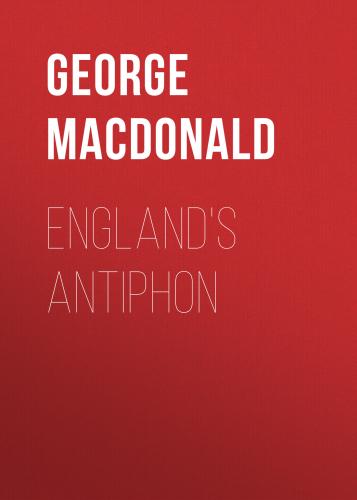The glory of our heavenly riches lay,
When him the silly61 shepherds came to see,
Whom greatest princes sought on lowest knee.
From thence read on the story of his life,
His humble carriage, his unfaulty ways,
His cankered foes, his fights, his toil, his strife,
His pains, his poverty, his sharp assays, temptations or trials.
Through which he passed his miserable days,
Offending none, and doing good to all,
Yet being maliced both by great and small.
And look at last, how of most wretched wights
He taken was, betrayed, and false accused;
How with most scornful taunts and fell despites
He was reviled, disgraced, and foul abused;
How scourged, how crowned, how buffeted, how bruised;
And, lastly, how 'twixt robbers crucified,
With bitter wounds through hands, through feet, and side!
* * * * *
With sense whereof whilst so thy softened spirit
Is inly touched, and humbled with meek zeal
Through meditation of his endless merit,
Lift up thy mind to th' author of thy weal,
And to his sovereign mercy do appeal;
Learn him to love that lovéd thee so dear,
And in thy breast his blessed image bear.
With all thy heart, with all thy soul and mind,
Thou must him love, and his behests embrace; commands.
All other loves with which the world doth blind
Weak fancies, and stir up affections base,
Thou must renounce and utterly displace,
And give thyself unto him full and free,
That full and freely gave himself to thee.
* * * * *
Thenceforth all world's desire will in thee die,
And all earth's glory, on which men do gaze,
Seem dust and dross in thy pure-sighted eye,
Compared to that celestial beauty's blaze,
Whose glorious beams all fleshly sense do daze
With admiration of their passing light,
Blinding the eyes and lumining the sprite.
Then shalt thy ravished soul inspiréd be
With heavenly thoughts far above human skill, reason.
And thy bright radiant eyes shall plainly see
The Idea of his pure glory present still
Before thy face, that all thy spirits shall fill
With sweet enragement of celestial love,
Kindled through sight of those fair things above.
There is a companion to the poem of which these verses are a portion, called An Hymne of Heavenly Beautie, filled like this, and like two others on Beauty and Love, with Platonic forms both of thought and expression; but I have preferred quoting a longer part of the former to giving portions of both. My reader will recognize in the extract a fuller force of intellect brought to bear on duty; although it would be unwise to take a mind like Spenser's for a type of more than the highest class of the age. Doubtless the division in the country with regard to many of the Church's doctrines had its part in bringing out and strengthening this tendency to reasoning which is so essential to progress. Where religion itself is not the most important thing with the individual, all reasoning upon it must indeed degenerate into strifes of words, vermiculate questions, as Lord Bacon calls them—such, namely, as like the hoarded manna reveal the character of the owner by breeding of worms—yet on no questions may the light of the candle of the Lord, that is, the human understanding, be cast with greater hope of discovery than on those of religion, those, namely, that bear upon man's relation to God and to his fellow. The most partial illumination of this region, the very cause of whose mystery is the height and depth of its truth, is of more awful value to the human being than perfect knowledge, if such were possible, concerning everything else in the universe; while, in fact, in this very region, discovery may bring with it a higher kind of conviction than can accompany the results of investigation in any other direction. In these grandest of all thinkings, the great men of this time showed a grandeur of thought worthy of their surpassing excellence in other noblest fields of human labour. They thought greatly because they aspired greatly.
Sir Walter Raleigh was a personal friend of Edmund Spenser. They were almost of the same age, the former born in 1552, the latter in the following year. A writer of magnificent prose, itself full of religion and poetry both in thought and expression, he has not distinguished himself greatly in verse. There is, however, one remarkable poem fit for my purpose, which I can hardly doubt to be his. It is called Sir Walter Raleigh's Pilgrimage. The probability is that it was written just after his condemnation in 1603—although many years passed before his sentence was carried into execution.
Give me my scallop-shell62 of Quiet;
My staff of Faith to walk upon;
My scrip of Joy, immortal diet;
My bottle of Salvation;
My gown of Glory, hope's true gage;
And thus I'll take my pilgrimage.
Blood must be my body's balmer,—
No other balm will there be given—
Whilst my soul, like quiet palmer,
Travelleth towards the land of Heaven;
Over the silver mountains,
Where spring the nectar fountains—
There will I kiss
The bowl of Bliss,
And drink mine everlasting fill
Upon every milken hill:
My soul will be a-dry before,
But after, it will thirst no more.
Then by that happy blissful day,
More peaceful pilgrims I shall see,
That have cast off their rags of clay,
And walk apparelled fresh like me:
I'll take them first,
To quench their thirst,
And taste of nectar's suckets, sweet things—things to suck.
At those clear wells
Where sweetness dwells,
Drawn up by saints in crystal buckets.
And when our bottles and all we
Are filled with immortality,
Then the blessed paths we'll travel,
Strowed with rubies thick as gravel.
Ceilings of diamonds! sapphire floors!
High
